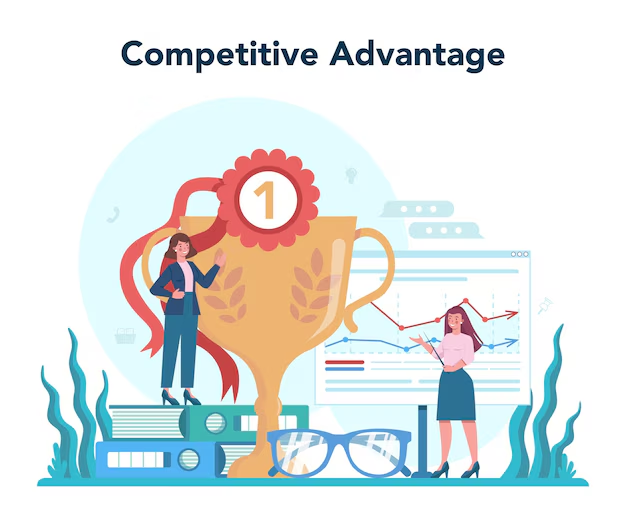Discover why hiring an Expert Web Development Team is essential for building high-performance, secure, and scalable digital experiences in 2025. Learn benefits, strategies, and expert tips.

An Expert Web Development Team plays a critical role in shaping a company’s digital success in 2025. With increasing user expectations and competitive online landscapes, only expert-level development can deliver the speed, security, and smooth experience that modern businesses demand.
-
Introduction
-
Why an Expert Web Development Team Matters
-
Major Advantages
-
Team Roles & Skills
-
Security & Performance
-
ROI Benefits
-
Use Cases
-
How to Choose the Right Team
-
Conclusion
In the fast-evolving landscape of digital innovation, expertise has become more than just technical proficiency — it’s a synthesis of intelligence, creativity, and precision. By 2025, the world of web development has transcended simple coding to become an ecosystem of strategic engineering, agile thinking, and human–AI collaboration.
An expert web development team today is not defined merely by its ability to build websites or deploy apps — but by its capacity to architect intelligent digital experiences that scale, adapt, and endure. These teams operate at the intersection of creativity and computation, turning ideas into ecosystems and interactions into impact.
In a marketplace where technology changes overnight and user expectations evolve in real-time, excellence is no longer optional. It is the currency of trust, innovation, and leadership. This article explores the anatomy of high-performing web development teams — breaking down the DNA that separates exceptional engineering organizations from average digital units — and reveals how these elite teams are setting new standards for quality, scalability, and innovation in 2025.
1. The New Definition of “Expert” in Web Development
A decade ago, “expert” meant technical mastery — knowing the frameworks, the syntax, and the servers. In 2025, it means something deeper: strategic fluency.
An expert web development team understands that technology is not a goal — it’s a vehicle for transformation. These teams combine engineering precision with design empathy and business awareness, ensuring every line of code aligns with a measurable business outcome.
The hallmark of expertise today includes:
- Strategic Architecture Thinking: Understanding not only how systems work, but why they should be built a certain way.
- Adaptive Learning: Continuous mastery of emerging technologies, from AI-driven code optimization to low-code frameworks and headless CMS architectures.
- User-Centered Design Mindset: Coding with empathy — developing experiences around accessibility, performance, and user trust.
- Operational Maturity: Integrating DevOps, CI/CD, and automated testing to maintain speed without sacrificing stability.
The result? A team that delivers not just functionality, but frictionless digital ecosystems — platforms that perform elegantly under pressure and evolve naturally with business growth.
2. The DNA of Excellence: Key Skills That Define Modern Web Development Experts
To build future-ready web systems, today’s expert teams operate with a multi-dimensional skill matrix — blending depth in specialization with breadth across collaboration.
a. Technical Mastery and Full-Stack Fluency
Front-end developers are no longer just designers with JavaScript; they are experienced engineers, fluent in React, Vue, or Svelte, with a deep understanding of micro-interactions and accessibility.
Back-end developers, on the other hand, architect scalable infrastructures — from Node.js and Python APIs to containerized microservices on Kubernetes or AWS Lambda.
An expert team doesn’t work in silos. Every member understands the entire application lifecycle, ensuring seamless handoffs between design, code, and deployment.
b. Cloud-Native Competence
Cloud-first architecture is now the standard. Expert teams leverage platforms like AWS, Azure, and Google Cloud for scalability, resilience, and continuous deployment.
They design infrastructure as code (IaC), automate environment provisioning, and integrate monitoring tools that provide real-time performance insights.
This ensures every digital product is elastic, secure, and ready for scale — essential for enterprises dealing with unpredictable global traffic and evolving customer demand.
c. Security-Driven Development
Cybersecurity is no longer a post-launch patch — it’s a development philosophy.
Expert teams follow Zero Trust frameworks, embed threat modeling into sprint cycles, and adopt end-to-end encryption from day one.
They know that in a world of evolving digital threats, security is performance — a key factor in user trust and brand credibility.
d. Experience Design and Accessibility
Aesthetics and usability converge in expert development. Teams embed WCAG accessibility standards, optimize for mobile responsiveness, and create inclusive, human-centered interfaces.
They understand that accessibility is not a checkbox — it’s a business advantage, broadening reach and reinforcing ethical leadership.
3. Collaboration: The Heartbeat of Excellence
In 2025, collaboration is the defining force of expert web development teams. The myth of the “lone genius coder” has vanished, replaced by cross-functional synergy — where designers, developers, DevOps engineers, and strategists co-create in unified cycles.
a. The Front-End–Back-End–DevOps Trifecta
The best teams operate as a single, synchronized organism:
- Front-end engineers focus on delivering intuitive, performant, and immersive interfaces.
- Back-end developers ensure data integrity, security, and robust architecture.
- DevOps specialists automate integration, testing, and deployment — enabling speed and reliability.
When these three disciplines converge, they form a creative engine that can transform complex requirements into seamless user experiences.
The synergy is not just technical — it’s philosophical. Each member understands that excellence is a team sport, achieved through communication, empathy, and iteration.
b. Agile and Beyond: The Era of Continuous Innovation
The agile methodology has matured. Modern teams don’t merely “do agile” — they live agile.
Their cycles of continuous improvement extend beyond sprints into continuous innovation loops, integrating real-time analytics, user feedback, and AI insights into every iteration.
They leverage collaboration tools like Jira, Notion, GitHub Copilot, and Figma — ensuring that design, development, and deployment operate as one synchronized process.
The outcome: projects that are faster to market, yet richer in quality, adaptability, and intelligence.
4. The Role of AI: The Invisible Team Member

Perhaps the most transformative shift defining expert teams in 2025 is the integration of artificial intelligence into every layer of the development workflow.
AI is no longer an optional tool; it is a core collaborator — enhancing precision, efficiency, and creativity.
a. AI in Development Workflows
AI-powered coding assistants such as GitHub Copilot, ChatGPT, and Amazon CodeWhisperer now augment human developers, offering intelligent code completion, predictive debugging, and automated documentation.
Machine learning models analyze past commits to anticipate errors before deployment, significantly reducing failure rates and delivery times.
These systems empower developers to focus on creative engineering rather than repetitive syntax — resulting in higher code quality and faster innovation.
b. Predictive QA and Automated Testing
Intelligent QA systems now detect performance bottlenecks, accessibility gaps, and security flaws before they reach production.
Automated pipelines continuously test applications across environments, integrating feedback from live user behavior to refine functionality and UX.
This AI-assisted feedback loop ensures that every release is not just functional but future-proofed for evolving conditions.
c. AI-Driven Design Collaboration
AI extends into design through tools like Figma AI and Adobe Firefly, which analyze user engagement data to suggest layout improvements or image alternatives.
By merging visual analytics with creative design, AI transforms intuition into evidence-backed creative intelligence — enabling design and code to co-evolve seamlessly.
5. Automation, Cloud, and Scalability: The Technical Backbone of Expert Teams
Expert web development teams are built for velocity and stability — a balance achieved through automation, cloud orchestration, and modular architecture.
a. Continuous Integration and Continuous Delivery (CI/CD)
Every expert team operates within a CI/CD ecosystem — automating builds, tests, and deployments.
This system eliminates manual friction, accelerates releases, and ensures consistent code quality.
Teams use tools like GitLab CI, Jenkins, and CircleCI to maintain a continuous flow of improvement, guaranteeing that each update enhances the overall system rather than disrupts it.
b. Microservices and API-Centric Design
Monolithic architectures have given way to microservices and API ecosystems, enabling independent scaling and modular innovation.
This approach allows expert teams to deploy updates without downtime, integrate third-party systems fluidly, and respond instantly to business evolution.
c. Cloud-Native Intelligence
In 2025, the cloud is not just infrastructure — it’s intelligence.
Cloud services powered by AI optimize resource usage dynamically, self-heal under load, and automate scaling decisions.
This autonomy allows expert teams to focus on innovation while the system itself manages operational resilience.
6. Leadership and Communication: The Invisible Glue
What truly distinguishes an expert web development team is not just technical skill, but leadership clarity and communication discipline.
High-performing teams operate on trust, transparency, and alignment — principles that convert technical excellence into consistent business outcomes.
a. Leadership as Enablement
Leaders in expert teams act as facilitators, not dictators.
They create psychological safety for innovation, encourage experimentation, and transform feedback into opportunity.
Great leaders don’t micromanage — they architect autonomy.
b. Communication as an Operating System
In distributed, global teams, communication is not an afterthought — it’s the operating system of success.
Expert teams leverage asynchronous collaboration tools, structured documentation, and feedback protocols that ensure clarity across time zones.
This communication culture minimizes friction and maximizes creativity.
7. The Human Element: Empathy, Creativity, and Continuous Learning
Even in an age of automation and AI, the essence of excellence remains profoundly human.
The world’s most advanced development teams succeed because they build with empathy, think with imagination, and learn without limits.
a. Empathy as a Design Principle
Every product begins with understanding — not of technology, but of people.
Expert teams practice empathetic coding, designing solutions that respect user behavior, accessibility, and inclusion.
They treat every interaction as an opportunity to build trust through thoughtful engineering.
b. Creativity as a Competitive Edge
Innovation thrives where creativity is nurtured.
By blending artistry with technical precision, expert teams create products that do more than function — they inspire.
They challenge conventions, experiment with new frameworks, and approach every constraint as an opportunity for creative evolution.
c. Continuous Learning as a Cultural Constant
Technology never stands still — neither do experts.
Continuous learning through knowledge sharing, upskilling, and experimentation is embedded into their DNA.
Through hackathons, internal mentorship, and innovation labs, these teams ensure that curiosity remains their greatest asset.
8. The Business Impact: Excellence as a Competitive Advantage

In enterprise ecosystems, expert web development teams are more than executors — they are strategic enablers of digital transformation.
Their influence extends beyond IT into marketing, operations, and customer experience.
a. Speed to Market
With automation and agile alignment, expert teams shorten delivery cycles — transforming concepts into revenue-generating platforms faster than traditional development models.
b. Quality as a Brand Differentiator
Every pixel, every function, every API contributes to brand trust. Expert teams ensure that quality is visible, turning user satisfaction into measurable ROI.
c. Scalability and Future-Proofing
By designing for adaptability, expert teams build platforms that evolve naturally — supporting future integrations, new technologies, and expanding markets.
The result? Digital resilience. A foundation that sustains innovation, growth, and competitive strength.
Conclusion: The Future Belongs to the Excellent
The anatomy of an expert web development team in 2025 reveals a simple truth: excellence is not accidental — it is engineered.
It is the outcome of unified collaboration, intelligent automation, and a shared pursuit of mastery.
It lives in teams that code with empathy, innovate with precision, and lead with purpose.
In an era defined by intelligent machines and global connectivity, it is the human spirit of craftsmanship, curiosity, and collaboration that continues to distinguish the best from the rest.
The expert teams of 2025 are not just builders — they are architects of digital destiny, shaping the way the world experiences technology.
And as enterprises seek the edge of innovation, it is these teams — precise, creative, and intelligent — who will lead the evolution of the web into its next magnificent chapter.


